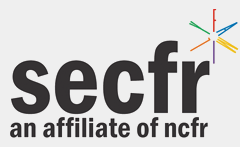Does Religion Buffer the Impact Combat Exposure has on Depressive Symptomology?
Proposal Focus
Research
Presentation Type
Presentation
Abstract
Seventy percent of service members identify as religious, and an accumulation of evidence supports the protective role religiosity may play in buffering mental health outcomes; therefore, it is important to examine if religion acts as a buffer for these individuals. Guided by religious coping theory, this study examined whether religiosity moderated the effect of combat exposure on depression in a sample of U.S. Army Soldiers (N=10,666). Data were drawn from the All Army Study (AAS) component of the larger Army Study to Assess Risk and Resilience in Servicemembers (STARRS) dataset. Using moderated path analysis, findings suggest that religiosity moderated the association between combat exposure and depression, such that higher levels of religiosity were associated with a lower impact of combat exposure on depression. Implications for military helping professionals include identifying leverage points for intervention such as during reintegration, particularly for Soldiers who identify religion to be important to them.
Keywords
religion, service member, combat exposure, mental health
Location
Yorkshire
Start Date
3-4-2020 3:20 PM
End Date
3-4-2020 4:30 PM
Does Religion Buffer the Impact Combat Exposure has on Depressive Symptomology?
Yorkshire
Seventy percent of service members identify as religious, and an accumulation of evidence supports the protective role religiosity may play in buffering mental health outcomes; therefore, it is important to examine if religion acts as a buffer for these individuals. Guided by religious coping theory, this study examined whether religiosity moderated the effect of combat exposure on depression in a sample of U.S. Army Soldiers (N=10,666). Data were drawn from the All Army Study (AAS) component of the larger Army Study to Assess Risk and Resilience in Servicemembers (STARRS) dataset. Using moderated path analysis, findings suggest that religiosity moderated the association between combat exposure and depression, such that higher levels of religiosity were associated with a lower impact of combat exposure on depression. Implications for military helping professionals include identifying leverage points for intervention such as during reintegration, particularly for Soldiers who identify religion to be important to them.
![Southeastern Council on Family Relations Conference [2018-2020]](/assets/md5images/a0d3661d5139dc9b769a57be6f085156.png)

